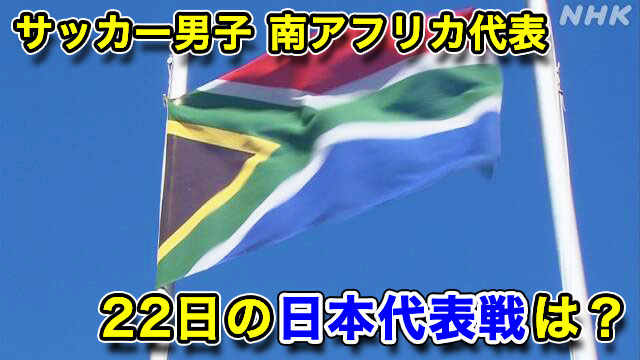At the Tokyo Olympics, a South African representative who was infected with the new coronavirus in three soccer boys, including a player, practiced in Chiba prefecture for the first match of the qualifying league against Japan.
Two South African soccer men who will participate in the Tokyo Olympics have two players and one staff member who tested positive for the new coronavirus, and 18 have been certified as close contacts.
On the 20th and 2 days later, the players split into two buses and entered the venue to practice in Chiba prefecture in preparation for the match against the Japanese national team in the first match of the qualifying league.
Then, during the 15 minutes of practice at the beginning of the show, the players were sweating in a relaxed manner, stretching, dashing, exchanging passes, and occasionally smiling.
Negative condition is required for participation in the test "6 hours before the start of the competition"
Eighteen of the national teams who have been certified as close contacts have been confirmed to be negative by the PCR test on the 18th, but in order for the close contacts to participate in the game, the nose should be 6 hours before the start of the competition. The condition is that the PCR test performed on the sample in the back of the is performed and the result is negative.
At least "13 people" must be registered for the match
At least 13 athletes must be registered to host a soccer match at the Tokyo Olympics, and the Games Organizing Committee has decided that South African athletes will be able to participate in the match against Japan on the 22nd. We are continuing discussions with such companies.
Expert "Inspection required after match to see if players are infected"
Regarding the confirmed infection in the South African men's soccer team, Mitsuo Kaku, a specially appointed professor at Tohoku Medical and Pharmaceutical University, who chairs the "Expert Board" in Tokyo, said, "A South African player who became a close contact. It is appropriate to make a negative confirmation by PCR test 6 hours before the match, but it is necessary to follow up well, such as checking if the athlete is infected after the match. ".
On the other hand, regarding the risk of infection of soccer itself, "It is a sport with a lot of intense contact, but there are not many reports that the infection spread in soccer games. For sports such as judo, wrestling, rugby, etc. that bring the face to face very close. By comparison, the infection rate is considered to be low. It is necessary to be careful because there is concern about the spread of infection in the locker room before and after the match, half time and after the match, rather than during the match. " I will.
He added, "How to control infection in a bubble with players and stakeholders is very important. In addition, prompt and flexible response is required so that it does not leak to the outside."

